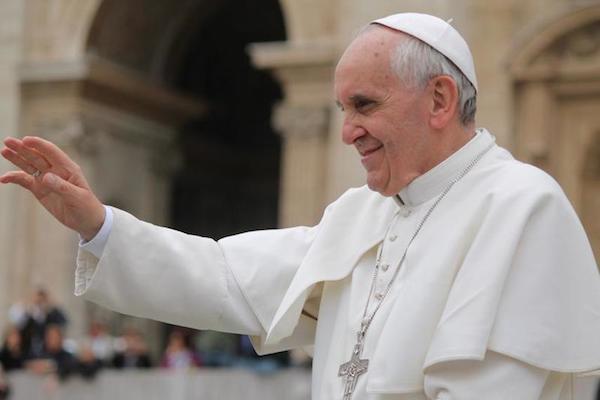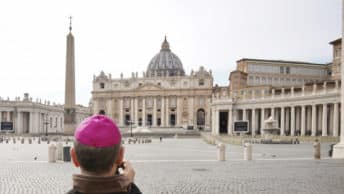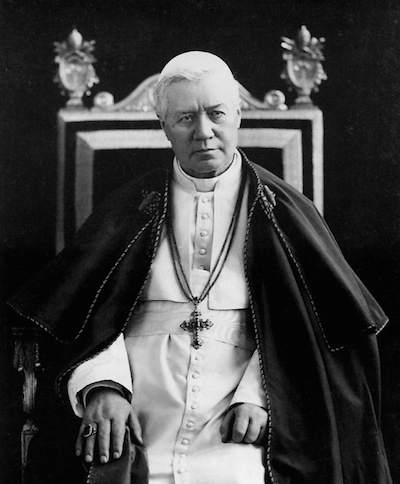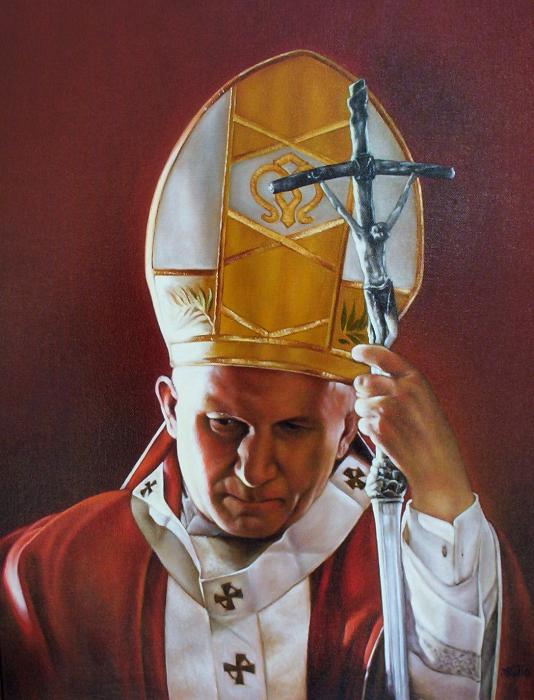On the 21st Sunday in Ordinary Time, we are presented with two figures who are given keys. The first is Eliakim. Eliakim was the secretary to Shebna the Master of King Hezekiah’s palace back in the 8th century before Christ. According the first reading from Isaiah, Shebna lost favor with the Lord and was replaced by Eliakim. Isaiah goes on to say that God placed the keys of the Kingdom on Eliakim’s shoulder. He would be Master of the Palace and the one through whom others would have to go to get access to the King.
The Gospel reading (Mt 16:13-20) presents Peter as receiving the keys of the Kingdom of God. Like Eliakim, he would determine who has access to the King. Peter is usually pictured as having carrying large keys, representing the authority given to him by the Lord.
In the third chapter of the Book of Revelation, we read about the faithful people of the ancient city of Philadelphia in what is now Turkey. Because these people were devoted to Christ, they are told that the One who holds the keys of David has left the door open for them to pass through and enter into God’s Kingdom.
So who holds the Keys of the Kingdom now? Jesus Christ is the judge of the Living and the Dead. He is the one who determines who will enter into God’s presence after their death. But who holds the Keys to the Kingdom here on earth? The answer is easy: since these Keys were entrusted to Peter, and since Peter was the head of the Church in Rome, Peter’s successor, the Bishop of Rome, holds the keys to the Kingdom. Right now, Pope Francis is that person. But the keys had been held by many before him. They will be held by all who will come after him.
Pope Francis has captured the heart of the world, Catholic and Non-Catholic. His determination to allow the Church to be “poor and messy,” as he would say, has resulted in millions applauding his reaching out to the marginalized of our society. His firm and decisive actions to remove those from ministry whose lives do not reflect the following of Christ has been a refreshing change from the old “close and eye and/or handle this quietly” that seemed to be the modus operandi of the Vatican. Millions flocked the streets of Rio last year to get a glimpse of this dynamic pope. But who is Pope Francis? He is Jorge Mario Bergoglio, an Argentine with a wonderful smile and a huge heart. But people did not line the streets to see Jorge Mario Bergoglio. No, they come to see Pope Francis. Why? Why are they so determined to see Pope Francis? Because he is the Pope. He is the successor of Peter. He is the one who is entrusted with the keys to the kingdom. He is our father on earth. The people who line the streets during Papal visits and who fill the Piazza San Pedro for the Sunday blessings and weekly audiences, all know that it is not just the man they are honoring; it is the office that the man holds they deeply respect.
We have a concrete authority who guides us. He is rock-solid, to use the pun on the name Peter. Because of the Pope and the teaching authority of the Church, we know who we are when we say we are Catholic. We know the fundamental beliefs of our faith and the basic dictates of our morals. We are so firm in our faith, that even if those in authority should give us a poor example of living the faith, we still maintain our Christianity. When leaders are so caught up in their humanity that they don’t recognize the result of their actions, we all hurt. Yet, the Church still flourishes. Why? Because the Church is far more than individuals, it is the Body of Christ. The Borgia popes and others from the past certainly gave us poor examples of living the faith, at least by twenty-first century standards, but God still used them to guide His Church. Perhaps the most notorious of the popes was Julius II. One would be hard pressed to justify most of his life. Yet, he was the pope that gave the Church the Angelus.
I remember the comment that the head of the Baptist convention made during one of Pope John Paul II’s trips to the United States. The preacher meant it as high praise. He said, “This man knows how to pope.” He meant that Pope John Paul II knew that He had to be firm yet loving not just for Catholics but for all the people of the world. He was truly a father, and the Holy Father at that. The same can be said for Pope Francis. He knows how to pope too. He is staunch in promoting the faith, but at the same time he is loving to all those who are seeking meaning to life, who are seeking the Lord. Still, it is the office not the men that we honor.
Back in the days before the last papal conclave, a reported asked one of the cardinals what the process would be for selecting the new pope. The cardinal replied, “God has already chosen the successor to Peter. It is up to us to discern whom the Lord has chosen.”
The readings (Is 22:19-23; Ps 138; Rom 11:33-36; Mt 16:13-20) for the 21st Sunday in Ordinary Time remind us why we honor the Vicar of Christ, the Pope. We don’t honor him for the individual he is. We are not concerned with demagoguery. We don’t honor Jorge Mario Bergoglio. We honor Pope Francis, a man who has been entrusted with the Keys of the Kingdom. In the recent centuries we have been blessed with popes who were certainly holy men. Blessed Pius IX, St. Pius X, St. John XXIII and St. John Paul II all gave us examples of how to live our Christianity. These men were intensely spiritual throughout their lives, not just as popes. They were beatified and canonized for the way they lived their Christianity, not for the way they exercised their authority. Other popes may not be candidates for canonization, but they all were holy fathers, entrusted with the keys to the Kingdom.
We pray today for our Holy Father, and for the one who hopefully a long time from now will succeed him, one, whom God has already picked, and for the pope after that and after that, all of whom are already chosen by God. And we thank God for literally devising a way to lead us on earth through the ministry of the man we call pope.








